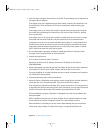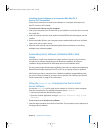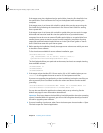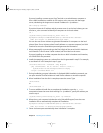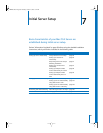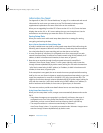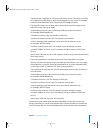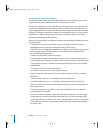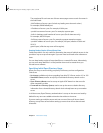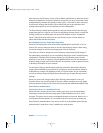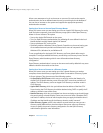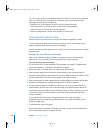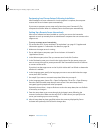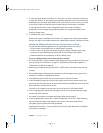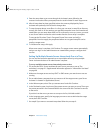
92 Chapter 7 Initial Server Setup
Using Setup Data Saved in a Directory
Using this approach offers the most unattended way to set up multiple servers, but it
requires that you have a DHCP and directory infrastructure in place.
Using Server Assistant, you save setup data to an existing directory the computer you
are using is configured to access and from which you want newly installed servers to
retrieve setup data. The schema of the directory must support stored setup data. Apple
OpenLDAP directories have built-in support for stored setup data. If you want to store
setup data in a different directory, you first need to extend its schema as the Open
Directory administration guide describes.
When you save setup data in a directory, a target server automatically detects and uses
the setup data if:
• The target server receives its network names (host name, computer name, and
Rendezvous name) and its port configuration from a DHCP server.
• The DHCP server is configured to identify the IP address of the directory server where
the setup data resides. See the network services administration guide for DHCP
server configuration instructions.
• The directory and DHCP servers are running.
• The setup data is stored in the directory in a path named /AutoServerSetup/ and a
record having one of these names; target servers search for names in the order listed:
<MAC-address-of-server> (include any leading zeros but omit colons). For example,
0030654dbcef.
<IP-address-of-server>. For example, 10.0.0.4.
<partial-host-name-of-server>. For example, myserver.
<built-in-hardware-serial-number-of-server> (first 8 characters only). For example,
ABCD1234.
<full-host-name-of-server>. For example, myserver.example.com.
<partial-IP-address-of-server>. For example, 10.0 (matches 10.0.0.4 and 10.0.1.2).
generic (a record that any server will recognize, used to set up servers that need the
same setup values).
• The correct passphrase is provided to the server (setup data stored in a directory
should always be encrypted).
You can use Server Assistant to supply a passphrase interactively, or you can supply
the passphrase in a text file. Place the passphrase file on a volume mounted locally
on the target server in /Volumes/*/SA_Keys/<pass-phrase-file>, where * is any device
mounted under /Volumes. A target server searches through volumes alphabetically
by device name.
LL2343.Book Page 92 Thursday, August 14, 2003 5:12 PM



